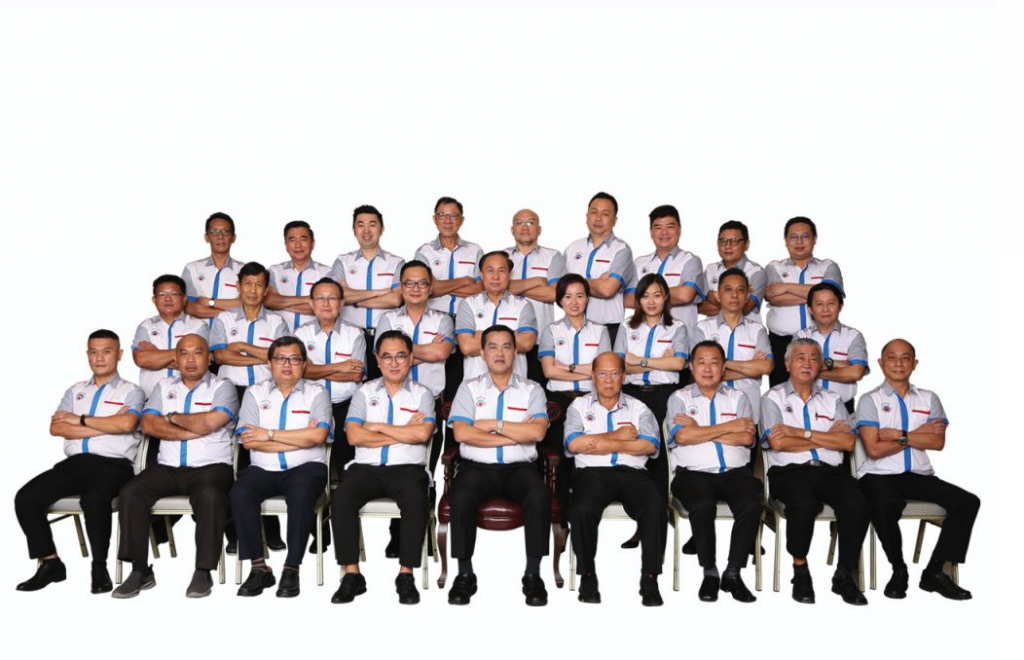Kuala Lumpur – The Malaysia Chinese Assembly Hall (MCAH) has noted the general satisfaction of the public with the recent presentation of the National Budget 2024 by the Prime Minister cum Finance Minister, Dato’ Seri Anwar Ibrahim. The budget, with a total allocation of RM 393.8 billion, is regarded as the highest in the country’s history and is appreciated for its comprehensive coverage, benefiting various ethnic groups and sectors.
However, following online surveys and big data analysis, MCAH has found that the public holds several opinions and expectations regarding this budget. They hope that during further deliberations in Parliament, the budget can be optimized. These expectations include a focus on the expenditure of non-profit charitable organizations’ welfare centers; and clearer allocation for Chinese Schools and the introduction of new tax measures and policies. It is suggested that dialogue with relevant stakeholders, such as E-Invoice, should precede implementation to prevent confusion.
Furthermore, one of the highlights of Anwar’s budget presentation was his use of both Chinese and Tamil languages. This left a lasting impression on the public. He quoted the thoughts of Mencius, emphasizing “benevolence, righteousness, wisdom, and propriety” as the central idea for the government’s drive to reform and put an end to people’s suffering.
“Mencius introduced the concept of benevolence, righteousness, wisdom, and propriety as the core of morality. This is also the central idea behind the government’s implementation of various reforms to eliminate corruption, reduce bureaucracy, accelerate the realization of people’s plans, and establish a stable government.”
In the case of the Tamil language, Anwar referenced a passage from the classic Indian text “Tirukkural,” which stressed that rulers must employ their power to strengthen national assets, increase wealth, prevent aggression against the nation, and promote the welfare of the people.
Datuk Seri Dr KK Chai, President of the Malaysia Chinese Assembly Hall (MCAH), pointed out that one of the most critical issues for the Chinese community is the allocation of funds related to Chinese Schools. The budget does not provide a detailed breakdown of education funding, which has raised concerns among Chinese education organizations. The Education Ministry’s allocation in the budget, totaling RM 58.7 billion (an increase from RM 55.2 billion in 2023), is the largest in history. The question of whether all streams of education will receive a fair distribution is a matter of concern.
He further emphasized that many welfare centers established by charitable organizations have faced financial difficulties due to a decrease in donations during the COVID-19 pandemic. The government should address this issue and take action to assist these centers.
“Anwar did mention cooperation with the ‘Madani’ framework in Parliament. The government, in its implementation of various programs, will focus on the Public-Private-People Partnership (PPPP) model. Additionally, to address various public welfare issues, the government will allocate RM 100 million to support non-governmental organizations and civil society organizations. However, there is a lack of detailed information on how these allocations will be assessed or how to apply for them.”
*Taxation and Electronic Invoices Require Prior Dialogue*
Datuk Seri Dr KK Chai emphasized that the MCAH has received feedback from various businesses expressing concerns about the potential chaos that could result from the mandatory implementation of electronic invoicing (E-Invoice). These businesses are hopeful that, before full implementation, relevant authorities should engage in discussions and communication with them to understand the practical challenges they may face.
He stated that on the same day, Anwar announced that all businesses with an annual turnover exceeding RM 100 million must implement the E-Invoice system starting from August 1, 2024. As for other businesses, they will gradually implement E-Invoices starting from July 1, 2025. Businesses are troubled by the government’s decision to widely use Tax Identification Numbers (TIN) for E-Invoice implementation, as this could raise system-related issues and potentially increase costs.
Regarding the three major tax changes, including raising the service tax rate from 6% to 8%, imposing a 10% capital gains tax on non-public listed companies, and levying a luxury tax up to 10% maximum, feedback received by the MCAH suggests that the market perceives these tax reforms as having a certain impact, potentially leading to a surge in prices.
He pointed out that people understand that the government needs to raise revenue to cover national expenses and manage the country’s RM 1.5 trillion debt. Consequently, the introduction of new tax measures is unavoidable. However, the government still needs to consider the impact on people’s lives and avoid placing a greater burden on the population.
*Cancellation of Price Ceilings on Eggs and Poultry for Stable Supply*
Datuk Seri Dr KK Chai pointed out that the budget’s announcement of canceling price ceilings on eggs and poultry, while possibly leading to short-term price increases, is crucial for the long-term stability of the domestic egg and poultry supply.
“The government can establish a buffer period before full implementation, gradually easing the restrictions on the prices of poultry and eggs. This allows both the market and the people to adapt and prevents unscrupulous businesses from taking advantage.”
He explained that the removal of price ceilings and various subsidies is a necessary step for the maturity and stability of our nation’s economy. Therefore, people need to adapt.
He pointed out that on the occasion of the centenary of Lee Kuan Yew, Singapore’s founding Prime Minister, last month, a video was widely circulated on the internet in which he expressed his views on subsidy policies. It appears to be highly relevant to the current situation in our country.
“Singapore’s founding Prime Minister, Lee Kuan Yew, made a statement 32 years ago in 1981 after losing a by-election where the opposition advocated and subsequently won with subsidy policies. He said, ‘Welfare and healthcare with something for nothing are akin to opium and heroin; once you’re hooked, it’s painful to quit!'”
*Recognition of Bantuan Sumbangan Tunai Rahmah (STR)*
Datuk Seri Dr KK Chai noted that in response to public opinion and analysis, the government has announced an increase in the distribution of the bantuan Sumbangan Tunai Rahmah (STR). This assistance will rise from the current RM 3,100 to RM 3,700 next year. Additionally, the minimum amount of aid for the youth will increase from RM 350 to RM 500. These changes are expected to provide meaningful help to low-income groups.
Furthermore, he mentioned that the government has allocated RM 200 million to continue the “Payung Rahmah” initiative, which includes various care promotions and care bazaars, providing support to 1.2 million wholesale market, night market, and farmer’s market operators. These initiatives directly assist those in need.
According to the latest data from the Statistics Department, there are a total of 18,445 households living in extreme poverty with a monthly income below RM 1,198. The government can provide greater assistance to these households, irrespective of their ethnicity, and is committed to helping them escape extreme poverty.
As per the report, the poverty line income value for the year 2022 has increased from RM 2,208 in 2019 to RM 2,589. The poverty rates in Malaysia for 2020 and 2021 stood at 8.4% and 8.2%, respectively. In 2022, the rate of extreme poverty decreased to 6.2%, encompassing 487,576 households in its calculation.
The urban poverty rate also increased from 3.9% in 2019 to 4.5% in 2022, while the rural areas saw a decrease, dropping from 12.4% to 12% in 2022. The number of households living in extreme poverty with a monthly income below RM 1,198 has reduced to 0.2% (18,445 households), down from 0.4% in 2019.
*Nationwide Preparation for the 2026 Tourism Year*
Datuk Seri Dr KK Chai highlighted that although it is still three years away from the 2026 Visit Malaysia Year, the Prime Minister’s announcement regarding the goals of attracting 26.1 million global tourists and achieving a target income of RM 97.6 billion from domestic and international tourists is one of the most impressive declarations.
“The government plans to allocate RM 3.5 billion for the global promotion and advertising of Malaysian tourism projects, making Malaysia the preferred tourist destination for global visitors. What is more important, under the Malaysia Visa Liberalization program, the government will improve landing visas, social visit visas, and introduce multiple-entry visas to encourage more tourists and investors, especially from India and China, to enter our country. This is what the people have been waiting for.”
He suggested that with the government’s agreement to relax the current conditions of the Second Home Malaysia program, which will attract more tourists and investors to our country, the Ministry of Tourism should provide a detailed implementation schedule and engage in consultations with relevant associations and non-governmental organizations to expedite the process. Given the severe impact of the COVID-19 pandemic on the tourism industry, everyone is eager to see the industry return to its former glory.
He also suggested that the government should actively explore measures to grant visa-free access to Chinese tourists. This recommendation comes in light of Thailand’s decision to grant visa-free access to Chinese tourists, which is expected to attract around 2.9 million visitors and generate approximately THB 140.3 billion (MYR 17.88 billion) in tourism revenue for Thailand. Thailand’s visa-free policy for Chinese citizens commenced on September 25 and will extend for five months until February 29 of the next year. This period includes this year’s Mid-Autumn Festival and the upcoming Lunar New Year holidays. Within the first two days of the policy, over 22,000 Chinese tourists entered Thailand. Reports also indicate that approximately 650,000 mainland Chinese tourists have already booked trips to Thailand for October. The Tourism Authority of Thailand anticipates that the total number of Chinese tourists for this year will reach approximately 4 to 4.4 million.
As for the Ministry of Local Government and Housing, which has received a historic allocation of RM 150 million for the first time, to be used for toilet upgrades and construction, Datuk Seri Dr KK Chai hopes that this issue will not become politicized, as it is closely related to the tourism industry.
“The Prime Minister has also allocated up to RM 100 million to Chinese New Villages and an additional RM 50 million for non-Islamic religious places, including Chinese temples. Therefore, we hope these allocations can be used to improve the conditions of New Villages across the country and turn them into outstanding tourist attractions, contributing to the country during the Tourism Year.”
He pointed out that Chinese New Villages across the country have received allocations exceeding RM 100 million for the second consecutive fiscal year, setting a historical record. In the past, the allocations were RM 50 million in 2017, RM 65 million in 2018, RM 85 million in 2019 and RM 60 million in 2020.

